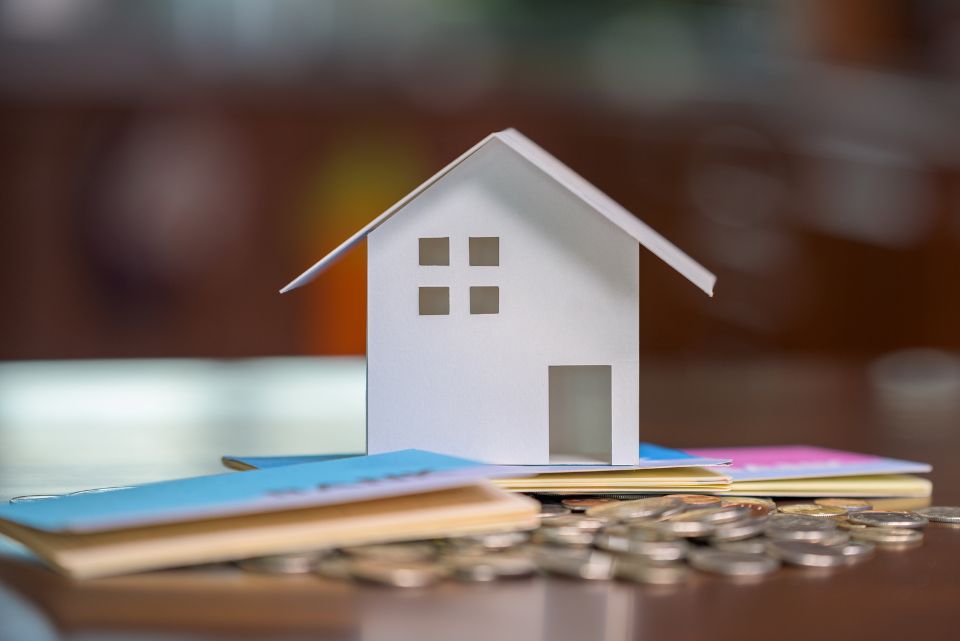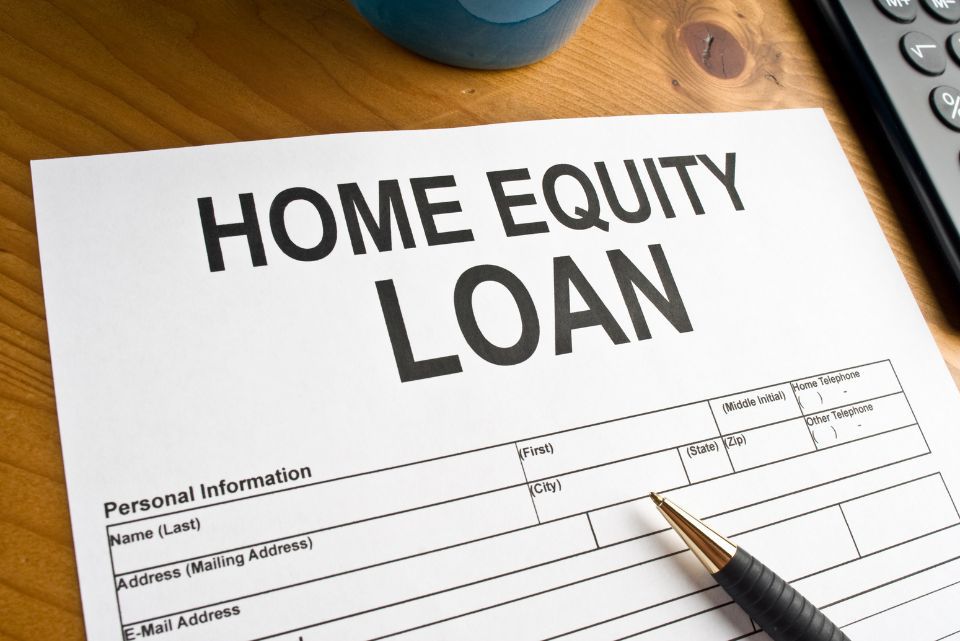

Have you thought about using the value of your home to get the cash you need? Think of it as tapping into the money you’ve already invested.
Home equity loans or cash-out refinancing in Singapore let you do this, and there’s no need to sell your property.
But before understanding how this loan works, let’s find out what equity is in a housing loan.
Before we discuss how to obtain an equity term loan in Singapore, let’s understand the fundamental concept of equity within a housing loan.
Equity, in this context, represents the portion of your home’s value that you own outright, as opposed to the portion your mortgage lender holds.
If your home’s current market value is S$300,000 and you still owe S$200,000 on your mortgage, then you possess S$100,000 in equity.
Here are the two main factors that can increase your equity:
Conversely, a decline in your property’s value faster than the rate of your mortgage payments will decrease your equity.
Home equity isn’t just a way to track your mortgage progress. It’s a financial asset. You can potentially borrow against your equity for various needs.
Equity-based loans often offer these advantages:

Consider this type of loan as the key to unlocking the hidden cash value in your home. It lets you borrow against the equity you’ve built up without having to sell your place. Let’s find out how it works.
Consider a scenario where you previously purchased your house for S$250,000, but its current appraisal values it at S$400,000. You’d love to turn your passion for baking into a small home bakery, but you need some startup funds.
With this loan, you could potentially borrow up to 75% of your home’s value (S$300,000). Since your house acts as security for the loan, you’ll often get great interest rates—much lower than you’d expect from a standard small business loan.
It might feel a bit like taking out a second mortgage, but an equity loan lets you turn the sweat you’ve put into your home into fuel for your next venture.
Equity loans which allow you to borrow against the value of your home, are not available to owners of HDB flats. Only private property owners can access this type of financing. Even then, the process is subject to careful bank assessment. The best candidates have fully paid-off properties that have increased in value over time.
Think of this loan like a piggy bank that slowly fills up as you make mortgage payments. You can tap into that ‘piggy bank’ for cash with this loan, even if you haven’t totally paid off the mortgage yet. So, how much can you actually get?
First, figure out how much your house is worth. You can get a rough estimate with online tools or by checking recent sales in your neighbourhood.
Subtract what you still owe on your mortgage. This is the part you haven’t paid back yet.
Usually, you can borrow a significant portion of what remains. Banks will often let you take around 75% of your home’s value, minus your existing mortgage.
Here is the formula without CPF usage: (Property’s Market Value x 75%) Outstanding Mortgage Amount = Equity Loan Amount
For instance, let’s say your house is worth about $400,000, and you’ve paid down your mortgage, so you only owe $150,000. So, your total equity loan amount is equal to $150,000 [(S$400,000 x 75%) minus $150,000].
Dealing with this loan involves some extra costs. Expect to pay around $2,500 to $3,000 in legal fees just to get the paperwork sorted. Some banks might throw in additional charges, like fees to get your house appraised to figure out its current value.
Also, it’s not a super-quick process. After you get your loan approved, it can take two to four months to actually get the money. So, if you think you’ll need the cash fast, it’s a good idea to start the whole application process early.
Keep in mind that you’ll need to go through all this every time you want to take out this loan. It’s best to borrow everything you need in one go. Taking out additional loans later means more legal fees and more waiting around.
Using CPF for your house? You might get a smaller loan later.
Let’s say you put down S$100,000 from your CPF to buy a condo. If you ever want this loan, the amount you can borrow will decrease by S$100,000.
Why does this happen? Well, they want to make sure you’re not sneakily cashing out your CPF savings. So, if you’re thinking about a term loan down the line, it might be smarter to pay for your house with cash if you can.
Moreover, you can’t use your CPF to pay off your loan. Those payments have to be in cash.
It’s easy to mix up equity loans and home loans; they sound similar, right? But they’re actually used for different things.
For instance, an equity loan lets you tap into the value you’ve already built up in your home. You can use it for all sorts of stuff—big medical bills, your kid’s college tuition, that fancy kitchen renovation you’ve been dreaming of. A home loan, on the other hand, is specifically for buying a new house.
Now, here’s where things get a bit similar. Both types of loans let you borrow a good chunk of your home’s value (up to 75%), and you have a long time to pay them back (think 30 to 35 years). Plus, you usually get pretty good interest rates with both (around 1%–3%, whether you want a fixed rate or something that changes over time). And remember, since your house is on the line, they’re considered secured loans.
However, here’s the key difference: to get a home loan, you’ll need a good credit history, a steady income (at least S$24,000 a year), and you have to be at least 21 years old.
Let’s talk about some things to keep in mind with equity loans.
Property type matters. You can get this loan using your private property. If you have an Executive Condominium (EC), there’s a waiting period before you qualify.
Debt Limits. Just like a regular mortgage, there are limits to how much debt you can have compared to your income. Your total monthly debt payments (including this new loan) can’t be more than 60% of what you make. There’s an exception, though: if the property is paid off and you’re not borrowing a huge sum of money, you might get around this rule.
Time Limits. Equity loans can’t last forever. The maximum term is either 35 years or until you turn 75 (whichever comes first).
Can’t be used to buy another house. You’re not technically supposed to use aN equity loan to buy another house. There might be some workarounds if you want to pay off an existing mortgage on a second property, but it’s best to talk to a mortgage broker to see what’s possible.
If you own an HDB flat, this option wouldn’t be applicable. For private properties, securing this loan depends on various factors assessed by the bank. Generally, fully paid-up properties with increased market value have better chances of approval.
Moreover, if you have a sound financial reason for taking the loan, are comfortable with the level of risk, and your property’s value has appreciated, then this type of loan could be a good option.
Equity loans offer temptingly low interest rates because your home secures the loan. That means if you default, the bank could seize your property. Consider your risk tolerance carefully. Are you comfortable with the potential consequences if you can’t repay?
This type of loan can be useful for funding business ventures, investments, or paying off high-interest debt. But if you’re planning a renovation or wedding, you might get better terms with a dedicated renovation loan or a personal loan.
If your home’s value has increased significantly since you bought it, this loan is a good way to access that extra value without selling. For instance, if your S$2 million condo is now worth S$4 million, you can potentially tap into that increased equity.
This can be a tool for consolidating high-interest debt. However, it’s crucial to understand the process and the significant risks involved before using your home as collateral.
Let’s consider this scenario, you owe S$100,000 in credit card debt, personal loans, etc., and you struggle to make payments.
You have fully paid off your home and have significant equity. You might consider an equity loan for S$100,000 at a lower interest rate (like 1.6%) to pay off the high-interest debts, resulting in a single, more manageable monthly payment.
Here’s what you should understand:
Cash-out refinancing is the process of taking out a new, larger mortgage than your existing one and taking the difference in cash.
For instance, a home was bought for S$500,000 and is now worth S$1 million. You might be able to borrow about 75% of the current value, minus your remaining mortgage balance.
The maximum you can borrow depends on:
Please note that only private properties are eligible for equity loans, not HDB flats.
Here’s the general guideline:
The maximum tenure of 75 years, minus your current age. For instance, if you’re 45, the maximum tenure would typically be 30 years (75 – 45 = 30).
So, if you have an existing home loan, the time you’ve already spent paying it off reduces the maximum tenure of your equity loan.
Here’s an example: if you’re 45 and have been paying your existing mortgage for 20 years, your equity loan’s maximum tenure would be 10 years (30 – 20 = 10).
Need cash but don’t want to sell your house? A home equity loan could be the answer. With this, you can unlock the value tied up in your property—often a big chunk of money—without selling it out. Moreover, these loans usually come with super-competitive interest rates. This is a major perk of owning private property instead of an HDB flat.
But hold on! Use term loans carefully. It’s always best to talk to both a home loan specialist and a financial planner.
Need an immediate cash? Crawfort offers fast and easy personal loans to meet your immediate needs. Apply now and get the cash you need.